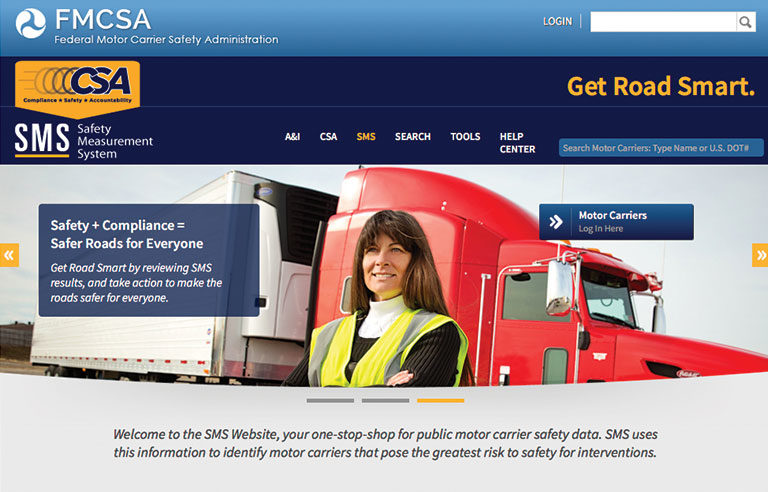FMCSA to host meeting on National Academies recommendations to revamp Safety Measurement System

Washington — The Federal Motor Carrier Safety Administration has scheduled a public meeting for Aug. 29 to discuss recommendations from a National Academies of Sciences study to establish a new statistical model to support FMCSA’s Safety Measurement System website.
FMCSA uses its Compliance, Safety, Accountability program to evaluate how safely commercial motor vehicle carriers operate, relying heavily on a carrier’s number of crashes and the amount of violations found during roadside inspections. The agency then uses SMS to identify carriers at possible risk of future violations or crashes.
As required by the Fixing America’s Surface Transportation Act of 2015, FMCSA on June 25 submitted a corrective action plan to Congress and the Department of Transportation’s Office of Inspector General. In July, the agency withdrew from its SMS website six proposed changes to the SMS methodology for calculating percentiles.
The National Academies study was mandated under the FAST Act and published in June 2017. A notice published in the Aug. 21 Federal Register states that FMCSA will consider input on recommendations Nos. 2, 3 and 4 of the study:
No. 2: FMCSA should continue to collaborate with states and other agencies to improve the quality of the Motor Carrier Management Information System (MCMIS) data in SMS. Two specific data elements require immediate attention: carrier exposure and crash data. Current exposure data (e.g., Power Unit [PU] and Vehicle Miles Traveled [VMT] data) is frequently missing, and data that is collected is likely of unsatisfactory quality.
No. 3: FMCSA should investigate ways of collecting data that will likely benefit the recommended methodology for safety assessment. This includes data on carrier characteristics – such as information on driver turnover rate, type of cargo, method and level of compensation, and better information on exposure.
No. 4: FMCSA should structure a user-friendly version of the MCMIS data file used as input to SMS without any personally identifiable information to facilitate its use by external parties, such as researchers, and carriers.
NAS researchers concluded that although “the current SMS implementation is defendable as being fair and not overtly biased against various types of carriers,” certain implementation features “can be improved upon, and some of the details of the implementation are ad hoc and not fully supported by empirical studies.”
Comments are due Oct. 22.
Post a comment to this article
Safety+Health welcomes comments that promote respectful dialogue. Please stay on topic. Comments that contain personal attacks, profanity or abusive language – or those aggressively promoting products or services – will be removed. We reserve the right to determine which comments violate our comment policy. (Anonymous comments are welcome; merely skip the “name” field in the comment box. An email address is required but will not be included with your comment.)

